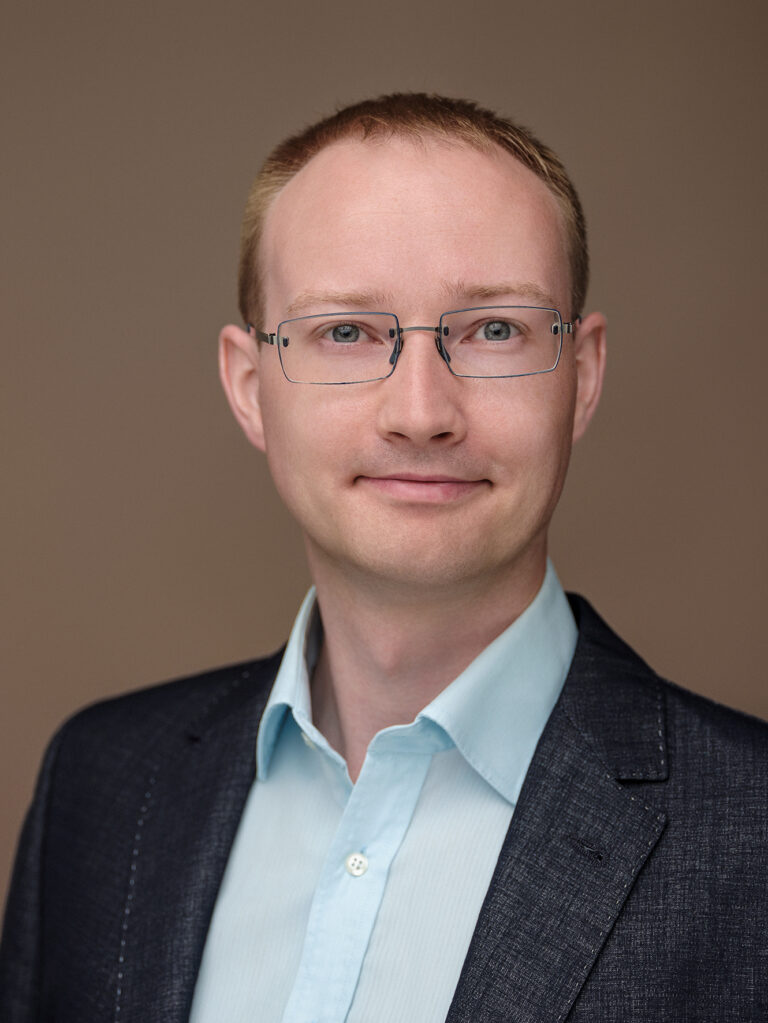Data-driven methods to discover novel materials: joint DRESDEN-concept Research Group of HZDR and TU Dresden
15.09.2023
Dr. Rico Friedrich is the head of the DRESDEN-concept Research Group “Autonomous Materials Thermodynamics – AutoMaT”. The group is jointly run by the Chair of Theoretical Chemistry at TU Dresden and the Helmholtz-Zentrum Dresden-Rossendorf (HZDR).
Each technology is inherently linked to a selected materials platform. Information technology is based on silicon, modern batteries are made of lithium compounds, and magnetic materials are crucial for the energy sector, just to name a few examples. Autonomous materials design aims to use data-driven methods to enable the self-directed discovery of materials. The AutoMaT project strives to apply this approach in the context of materials thermodynamics to predict new two-dimensional (2D) and highly entropic compounds for both potential electronic applications and the energy sector.
The Junior Research Group was established in October 2022 under the leadership of Dr. Rico Friedrich and can draw on the expertise of the Chair of Theoretical Chemistry at TU Dresden and the HZDR. Through its experience in internationally leading material simulation techniques, the Chair of Theoretical Chemistry offers a particularly fruitful environment for the AutoMaT group’s research. At the HZDR, the group is in line with the materials research strategy of the Institute of Ion Beam Physics and Materials Research and the Center for Advanced Systems Understanding (CASUS), which provide an optimal setting for research on nanoscale systems and data-driven science.
Thermodynamics is at the heart of materials development, ensuring the manufacturability of thermodynamically stable systems. However, standard theoretical approaches are often unable to reliably predict the thermodynamic stability of materials, compromising material design.
Coordination Corrected Enthalpies (CCE), a method developed by Dr. Rico Friedrich, allows to overcome this problem and efficiently predict the thermodynamic stability of compounds. Prior to his stay in Dresden, the current DRESDEN-concept Research Group Leader developed this innovative approach as a Feodor Lynen Research Fellow of the Alexander von Humboldt Foundation at Duke University in the USA. As an Adjunct Professor at the Center for Autonomous Materials Design at Duke University, Dr. Friedrich and his group continue to benefit from close collaboration with this institution.
Dr. Friedrich has already been an associate member of the DFG Collaborative Research Center 1415 “Chemistry of Synthetic Two-Dimensional Materials” at TU Dresden since 2021, which also involves other DRESDEN-concept partners, such as the Leibniz Institute of Polymer Research Dresden, the Leibniz Institute for Solid State and Materials Research Dresden, and the HZDR. This collaboration opens up far-reaching opportunities and mutual benefits for exploring nanoscale materials and exploiting synergies in the design of 2D systems.
A suitably formulated descriptor will enable the identification of new candidates for the design of 2D systems and the investigation of their properties in the AFLOW database – one of the largest collections of computed material data in the world.
Disordered materials are ideal for data-driven investigations, since they can be modeled as a (large) set of ordered systems. The planned activities will aim in particular at the prediction of disordered high-entropy ceramics. These systems will be designed under the new paradigm that entropy gain is the driving force in the formation of the material, rather than enthalpy gain. The autonomous predictions can thus specifically guide experimental research.
The DRESDEN-concept Research Group “Autonomous Materials Thermodynamics – AutoMaT” enhances Dresden’s research at the interface of chemistry, physics, and materials science with its data-driven approaches. These approaches can be of crucial importance for the discovery and exploitation of previously unexplored classes of materials.
About DRESDEN-concept Research Groups:
DRESDEN-concept offers outstanding early-career researchers an optimal environment for establishing their own independent research group and provides them with appealing career opportunities. These groups address innovative research topics and can draw on the expertise of two DRESDEN-concept partner institutions, which jointly host the DRESDEN-concept Research Group.
 ©Bastian Krüger
©Bastian Krüger